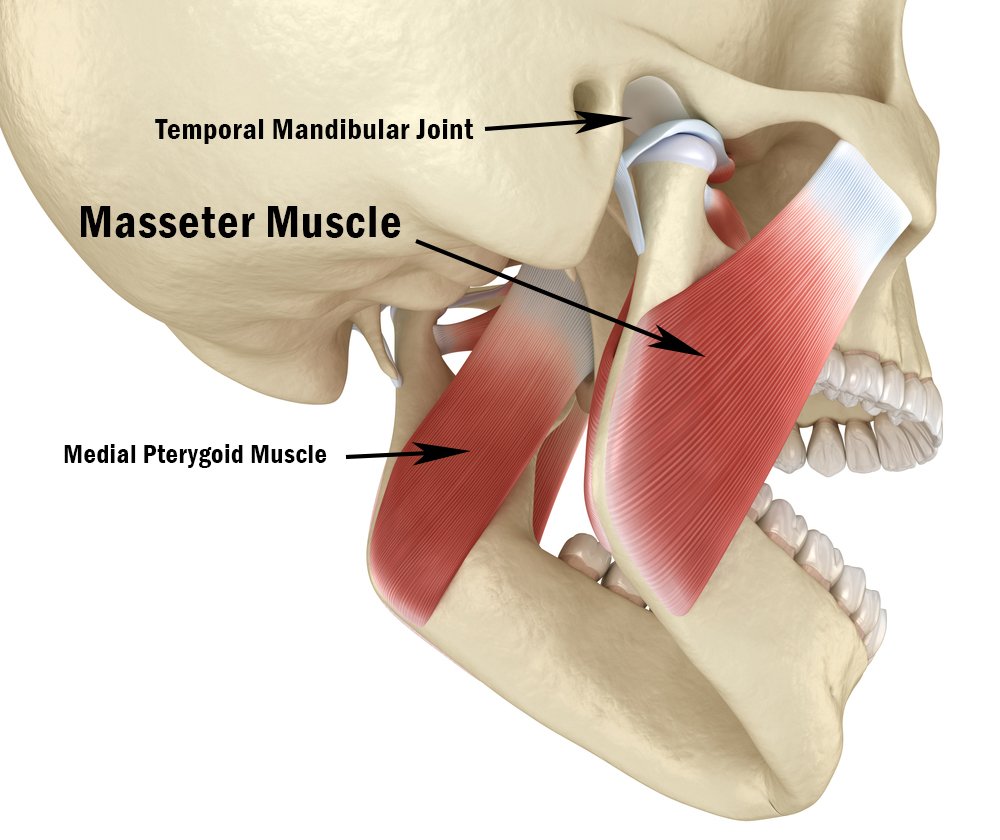BOTOX® can help alleviate TMJ disorder symptoms of jaw pain, stiffness, teeth grinding, and restricted jaw movement.
What is TMJ?
TMJ stands for temporomandibular joint, which is the joint that connects your jawbone (mandible) to your skull. It is located in front of your ears on both sides of your face. TMJ disorder, often referred to as TMJ or TMD, is a condition that affects this joint and the muscles surrounding it.
TMJ disorder can cause pain and discomfort in the jaw and the muscles that control jaw movement. The exact causes of TMJ disorder are not always clear, but many factors can contribute to its development.

What are Masseters and how can BOTOX help treat TMJ disorder?
The masseter muscles are the primary muscles responsible for chewing and are located at the sides of the jawline. Tense masseter muscles can be caused by several factors, including genetics, teeth grinding (bruxism), and excessive chewing.
BOTOX injections for masseters involve injecting small amounts of the neurotoxin into the masseter muscles. The toxin works by temporarily blocking the release of acetylcholine, a neurotransmitter that signals muscle contractions. By inhibiting the muscle contractions, BOTOX can relax the tense and overactive masseter muscles, which are often responsible for jaw pain and stiffness in TMJ. By making these muscles less tight, it can relieve the discomfort, improve jaw function, and prevent teeth grinding.
